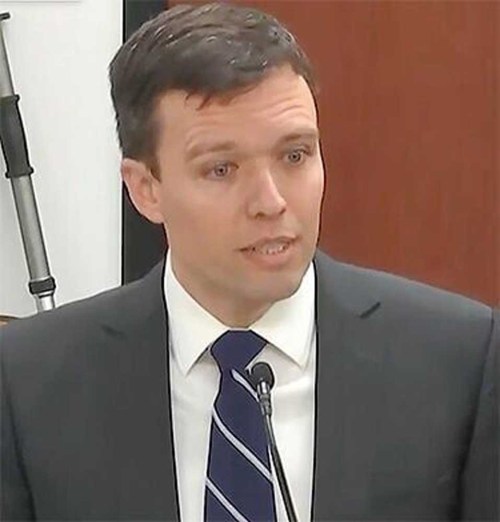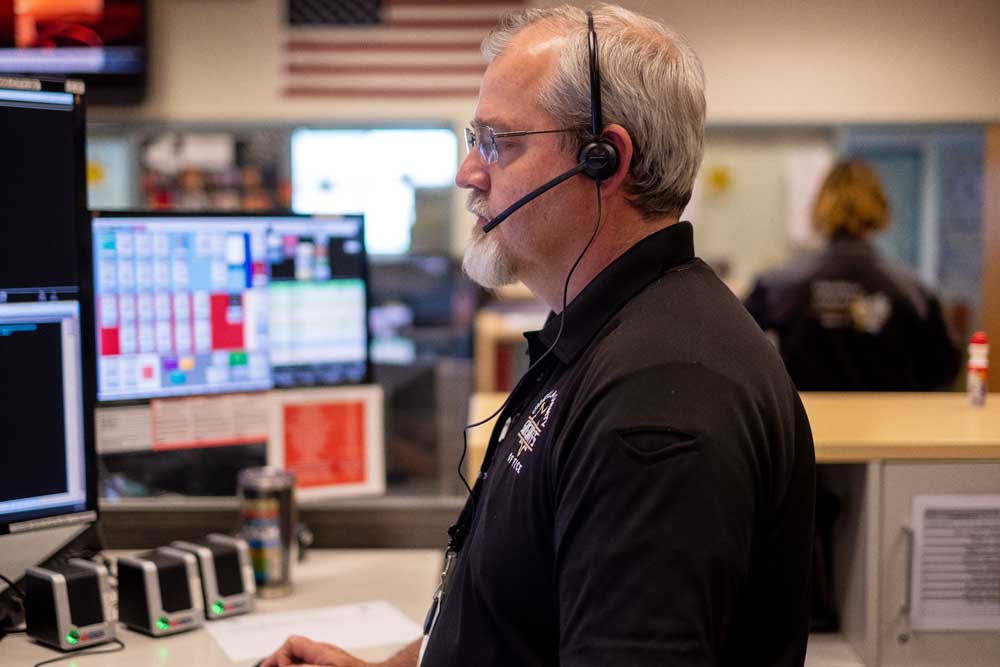Washington denies new capital gains tax also taxes income
Published 8:14 am Tuesday, January 31, 2023

- Washington Solicitor General Noah Purcell argues Jan. 26 to the state Supreme Court that the state's capital gains tax should be upheld. The court is meeting in temporary chambers in Tumwater while the Temple of Justice in Olympia undergoes renovations.
Washington Supreme Court justices Jan. 26 zeroed in on what exactly is being taxed by the state’s new capital gains tax, a question at the heart of whether the tax is constitutional.
Solicitor General Noah Purcell, defending the tax, said it is on transactions, such as selling stock. It’s like taxes on gross business receipts or real estate sales, he said.
Trending
“What’s taxed here is the transaction and the measurement of the tax is how much you earn, but that does not turn it into an income tax,” Purcell said.
Ex-state attorney general Rob McKenna, arguing for the Washington Farm Bureau and other foes of the tax, said income was being taxed, putting it at odds with the state constitution.
“What’s being taxed here isn’t the transaction. You could have a hundred transactions and there’s no tax on them,” he said. “It’s when you (realize) income that the tax applies.”
Meeting in Tumwater while the Temple of Justice in Olympia undergoes renovations, justices heard arguments on the constitutionality of the 7% tax on capital gains over $250,000.
Capital gains from selling farms, livestock and timber are exempt, but the tax applies to selling shares in businesses.
The Washington State Tree Fruit Association and Washington State Dairy Federation also are suing to overturn the tax. Like the Farm Bureau, they say some members will be forced to pay it.
Trending
Douglas County Superior Court Judge Brian Huber last year ruled the tax unconstitutional. At Attorney General Bob Ferguson’s request, the Supreme Court reinstated the tax for now.
Taxes on 2022 capital gains will be due April 18 unless justices rule otherwise.
Huber’s ruling cited the Supreme Court’s 1933 Culliton decision, which found income was a form of property.
The ruling overturned a graduated income tax because the state constitution requires property to be taxed uniformly and for taxes to be limited to 1% of the property’s value.
Purcell told justices they don’t have to reverse Culliton. That case was about an income tax and the current case, Quinn v. the State of Washington, is not, he said.
“There are countless ways to earn income without owing the tax,” he said. “There has to be a transaction. That’s what triggers the tax.”
Purcell faced skeptical questioning, especially from Justice Sheryl Gordon McCloud.
“The fact of the matter is, if I sold stock on the New York Stock Exchange and took a loss, you wouldn’t be taxing that,” she said.
Purcell said lawmakers could have imposed the capital gains tax on every transaction and issued refunds to taxpayers who didn’t earn at least $250,000.
“It would have been far more difficult for taxpayers, and it would have been far harder for the Department of Revenue to administer,” he said.
McKenna said the tax relies solely on whether a taxpayer’s federal income forms showing capital gains topping $250,000.
“All those sales and exchange are of no matter,” he said. “All that matters is recognizing income.”
In contrast to Purcell, an attorney for the Washington Education Association urged the Supreme Court to overturn Culliton, removing a barrier to a graduated state income tax.
Overturning Culliton would give lawmakers power to “make taxing decisions that are fair and equitable,” said Paul Lawrence, representing the teachers union and other education groups.
In the Senate and House, Democrats have introduced constitutional amendments to eliminate the uniformity clause for property taxes, another way to open the door to an income tax.
Gov. Jay Inslee is banking on the court upholding the capital gains tax. He included $386 million in capital gains taxes in the two-year spending proposal he recently sent lawmakers.
Purcell asked justices to rule as quickly as they could so legislators will know whether the state will get the money.









